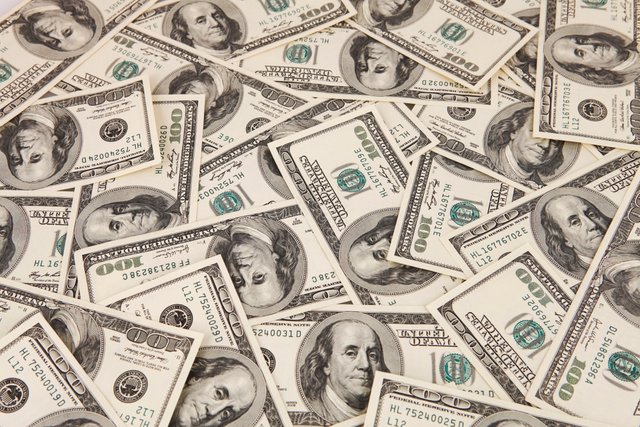Bitcoin is NOT money Yet, Could it become Money or Will it go "Bust"?
Crypto-currencies such as Bitcoin have no non-monetary use.
That need not prevent bitcoin from achieving and maintaining the status of money. But the question is: is it likely to succeed without it? If so, bitcoin might be a steal today. If not, its value could go to zero tomorrow.
To become accepted as money, bitcoin would need to displace established currencies—but only partially.
Austrian economist Carl Menger taught that communities have a natural tendency to gravitate toward the use of one single good as money—the one which proves most marketable as a medium of exchange.
As a result, there is a tendency for the whole world to gravitate towards one form of money (gold, for example). But this tendency can be countered by local forces that make one good more marketable in one community, while a different good may be more acceptable in another (whether those communities are defined geographically, or by common interest over the internet).
Today, governments exert just such local forces
Each government effectively requires the adoption of the fiat currency of its choice as money in its jurisdiction. They do this in several ways, but the main one is that each government acts as a principal committed user of its chosen currency. Each government demands that taxes be paid to it in its chosen currency. And each makes payments in its chosen money, so distributing that money widely among holders of government debt, government employees, contractors, welfare recipients etc.
Together, demand generated by the necessity of paying tax in the government’s chosen currency, and its widespread distribution, greatly enhance the marketability of the chosen money in that jurisdiction. The result is a world with numerous fiat currencies, many of which are traded globally, but each of which tends to dominate in its issuer’s jurisdiction.
So, can bitcoin become the dominant form of money?
Globally, within one country, or for a particular segment of the economy (for example, online transactions, cross-border remittances, or illegal activity)? Perhaps. Bitcoin does appear to have some of the attributes that enhance a good’s marketability as money: it is divisible, fungible, recognizable, portable, and potentially can be stored securely and with relative ease (although not yet: wallets keep getting hacked). But for all of its positive attributes, bitcoin faces to two big obstacles that hinder its rise to money status:
1. The lack of a big committed user
Which leads to the risk of version-hopping.Governments are major committed users of their chosen money. So long as a government appears stable and is committed to demanding taxes and making payments in one currency, that currency has a significant advantage in marketability over potential rivals—including bitcoin. Bitcoin has no major committed user that can be relied on to sustain its marketability as money, at least not one to compete with stable national governments as in, say, the US or China.
Venezuelans may have good reason to trust the bitcoin community over their own government, but next year they might prefer ether or bitcoin’s younger and faster brother “bitcoin cash”. With no major player committed to bitcoin, there will always be the risk that a new and better crypto-currency appears, and that users migrate to it. The last ones to get the memo will be left holding 21mn pieces of valueless encrypted data. The new crypto-currency might even be managed by a government. Clearly “Fedcoin” would lack the libertarian appeal of a currency independent of a state. But, like it or not, government backing is a net positive for marketability.
2. Volatility, not just now but also in the future.
The current volatility of bitcoin is often cited as a reason to avoid it. If this volatility was to be expected only during the currency’s initial adoption phase, it wouldn’t be a fatal drawback. But there are reasons to believe bitcoin will always be relatively volatile compared with fiat currencies like the US dollar or renminbi. The main one is that major central banks tend to adjust the supply of their chosen money more or less in line with changes in demand for it. They do not aim to make their money a good store of value over the long term, but they do try to keep the value of their money fairly stable over the short to medium term—with most targeting gradual inflation of about 2% per year.
This approach has served well enough to make the major currencies of today marketable as means of exchange. Gold may hold its value better than the US dollar over the long-term, but the dollar is clearly less volatile in the short to medium term, making it much easier to use as money than gold.


Good points! I think that Bitcoin, as it is now, is not able to scale globally due to the poor performance and the increasing transfer fees for the miners. Waiting for the Lightning Network and Segwit.
We all expect one day cryptocurrency will one day become part of our lives.
Getting so common nowdays..... Online transactions, payments, credits and so on.
Just think how the world is evolves and in 10 or 20 years it will come
Hi @vlemon , interesting post as always :) In my view, Bitcoin cannot be considered "money" yet because of its fees, volatility and highly speculative value. Most people are in Bitcoin to hold and are reluctant to spend their coins because they fear missing out on a 10x return. Maybe futures will bring the stability/liquidity Bitcoin needs to really become money.
Hi @tradealert, It is nice seeing you around. I can only agree with you and as you follow me, you know that I prefer altcoins but massmarket only heard about BTC.
Take care.
Both points made by you are valid. Without governments backing it, bitcoin will always be treated as step child.
Intrinsic Volitality of bitcoin where attracting lot of investors intrest also hinders the long term user investment and marring the bitcoin use in daily life of a common man.
I mean I would never buy pizza for my satoshi and would be happy to hold tham in short term, making profit.
Yeah exactly the government has a big say to bitcoin. The wise thing to do is to buy real asset with ur bitcoin now and hold than holding bitcoin.....because bitcoin is gonna soar high to fall fast into the unknw.
Is funny to think bitcoin as a possible replacement to convectional exchange system. And if the world government finally descide to use any of the cryptocurrencies as it one currrncy it definately won't be bitcoin or any coin of high value.
Great Post , Its been all over the news how people are going to loose all their bitcoins .. Im a newbie at cryptocurrency still learning and found this post very interesting :D Thanks
Thank you for the comment, you consider yourself as a Newbie but I am pretty sure you are the Top 1% in terms of Crypto knowledge ;)
I think bitcoin is money because people use it to buy ans sell things, it's just not used everywhere, but it will be usesed everywhere the price will grow like hell and that time is very soon, my prediction is $1 million dollars in a few years and maybe in two year, if in 2017 it became almost 20,000 after being less than 1000, so it's possible that will go 100,000 in the next year and $1 million in 2019 ☺
If it's used as a measurement of wealth, it's money regardless of not being physical. You can slap a price tag on anything and say that is its value, regardless of not having the money to represent it.
what about the capitalisation there ? it's real money I think
nothing is "real" money
gold was not money until we turned it into wealth because it was shiny and rare
other cultures were using iron rods, or cocoa beans or rice bushels with the same usage
It currently costs around 10/20$ to transfer Bitcoin. As it is now we'll never use it to buy everyday things. For now it can be considered an asset like gold, with the huge risk of it falling.
I don't think that there is a risk in bitcoin, because if it fall for let's say 1000 or 2000 it will go +5000 or +10000, bitcoin is like stairs, always to the top ☺
Nah that won't happen.. I agree that the price would go high but it would then become useless......some crypto currencies maybe designed would be use if the world(government) finally agree to use a crypto coin.
super useful information to add to the mix. i love reading snippits like this from people that know more about this subject than me. resteemed.
Thank you for the support. It is my pleasure to share some thoughts on this entire new world.
Only time will tell..
No one can give a definite answer yet. Volatility is certainly bad, if we consider Bitcoin not as a way of earning traders, but as a currency for payments. On the other hand, volatility helps to avoid the state, but do not forget that the idea of crypto-currency is decentralization. Vicious circle. It's not known how people will choose between stability and decentralization.